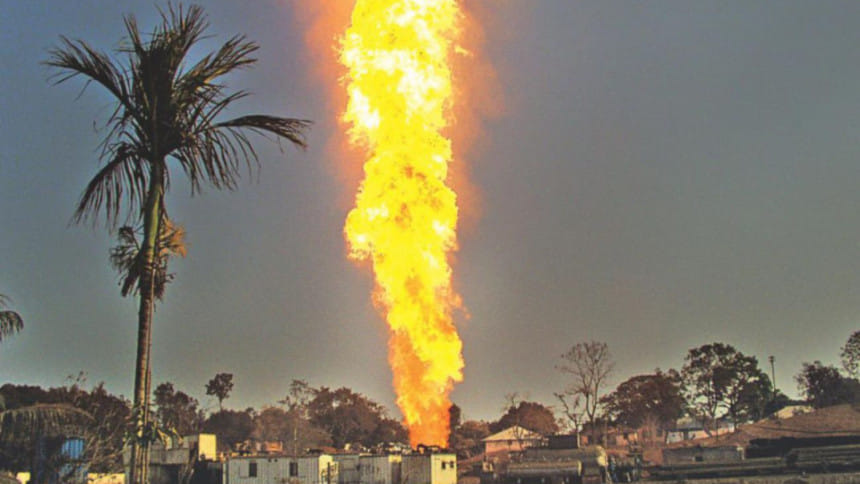THE NIKO ARBITRATION Lessons for Bangladesh

The domestic trial of the Niko graft allegations has been continuing for quite some years, now reaching at the apex court in Bangladesh. This trial was triggered by the revelation of a web of bribery corruptions that Niko engaged in to win its natural gas contracts. In 2007, an international investigation conducted by ACC, Canadian Police, and FBI found that Niko hired middlemen to buy off corrupt key officials and politically influential persons to accomplish its goal. This trial is therefore in order and indeed imperative to bring those to justice who gave their personal greed precedence over the hardcore national interests. However, my purpose here is not to dwell on this domestic Niko graft case but to briefly highlight and comment upon what went on in the international arbitration between Niko and Bangladesh in London to sound a forewarning for Bangladesh to take its future state-investor dispute settlement (SIDS) seriously. Since these arbitrations are usually held in foreign jurisdictions, they often escape public scrutiny and concern with marginalising effect on the national interests, warranting an investigation not only to uncover nefarious deals, if any, but also to improve future performance in SIDS. The Niko arbitration appears to serve an example.
Niko Resources (Bangladesh) Ltd, a subsidiary of a Canadian corporation, entered into a joint venture agreement with BAPEX in 2003 to develop gas fields in Feni and Chattack. Petrobangla became the buyer of gas from the Feni field under a gas purchase and sales agreement (GPSA) with Niko. In drilling the Chattack gas field by Niko, two blowouts occurred on 7 January and 24 June 2005, which remained uncontrolled causing extensive damage to the gas wells, human lives, and the surrounding environment. The energy ministry's inquiry committee determined that the fire was the result of Niko's operational failure and inappropriate casing design. These blowouts gave rise to a dispute over the attribution of responsibility and compensation. Petrobangla sued Niko in a Bangladesh Court for damages in 2008. But Niko instead proceeded to an international arbitration under the International Centre for the Settlement of Investment Disputes (ICSID) in April 2010 requesting: (1) to exonerate itself from the liability for any damages caused by the blowouts, and (2) to realise its arrear gas bill from Petrobangla.
Niko avoided the Bangladesh court's jurisdiction pursuant to an arbitration clause in the joint venture agreement with BAPEX (Art. 18). In the two blowouts, Niko's negligence and lack of experience giving rise to responsibility were evident, which ICSID arbitrators ignored and concentrated solely on the failure of Petrobangla to make payment under the GPSA. ICSID award ordered Petrobangla to pay for Niko's invoices for gas delivered from November 2004 to April 2010 with interest compounded annually. On 6 August 2015, Bangladesh requested the ICSID tribunal to decide that 'the outstanding amounts under the Payment Claim Decision will be payable … only after all issues regarding Niko's liability are resolved', which was rejected (Cases No. ARB/10/11 &ARB/10/18, award of 14 September 2015, paras. 43, 167).
Petrobangla suspended its payment for the purchase of gas under an injunction issued on 5 May 2010 by the High Court Division (HCD) in response to a petition by the Bangladesh Environmental Lawyers Association. ICSID tribunal disregarded this injunction in assuming its jurisdiction over the dispute concerning the non-payment of gas invoices in violation of the ICSID Convention which states that, in arbitrations between foreign investor and host state agencies, 'consent by a constituent subdivision or agency of a Contracting State shall require the approval of that State unless that State notifies the Centre that no such approval is required' (Art. 25(3)). No approval for Petrobangla's participation was sought or got from Bangladesh, nor did Bangladesh send any approval voluntarily to ICSID for Petrobangla to participate in the arbitration or notified ICSID that no such approval was required.
The history of FDI-led project operation is littered with instances, like the Bhopal disaster, of foreign investors' scanty regard for the environment, human rights, and sustainable development in host states. Foreign investors cannot operate their projects in a foreign jurisdiction in defiance of local laws, national interests, and public policies. Disregard by ICSID tribunal for Niko's negligence in two major gas field blasts in Bangladesh demonstrates its insensitivity to the vital interest of the host state and overly sensitive to protect corporate interests of Niko.
The dispute settlement procedure under the Niko-BAPEX joint venture agreement does not require the exhaustion of domestic remedies as a requirement for resorting to international remedies but specifies that disputes would be resolved through ICSID arbitration. Moreover, some pleadings contained in the BAPEX rejoinder favoured Niko more than Bangladesh. The following two examples extracted from the ICSID official's record are illustrative of the gaps and inadequacies in the representation of Bangladesh's competing interest:
1. BAPEX did not contest Niko's factual account of the blowouts and merely stated that it 'has never invoked Niko's liability for the two blowouts' and that 'it has little or nothing to add in response to Niko's description of the facts' (BAPEX Rejoinder filed with ICSID tribunal on 25 September 2014, paras. 2, 21); and
2. BAPEX never contested in any substantive manner 'the question whether Niko breached any obligation or law and whether Niko has any liability with respect to the blowouts' (ICSID, Niko v BAPEX and Petrobangla (Case No. ARB/10/11 and ARB/10/18, decision on jurisdiction, Procedural Order No. 7 of 17 October 2014).
Admittedly, there is a perennial issue of highly incentivised foreign direct investment (FDI) regime skewing disproportionately in favour the foreign investors. Nonetheless, the proceedings of the Niko arbitration clearly show the lacklustre representation of the competing interest of Bangladesh before the arbitral tribunal. As a result, Bangladesh lost in a distinctly winnable arbitration. Bangladesh as a host state accept FDI not for fun but for its economic development. FDIs are not the end but a means towards the end of development. Bangladesh must be prepared and positioned itself to withstand and face the challenge of international arbitration actions initiated by foreign investors such as Niko to protect its national interests.
Most arbitration clauses in bilateral investment treaties (BIT) of Bangladesh tilt to protect corporate interests more than its national interests (subject of a forthcoming piece). Bangladesh needs to be more careful and measured in offering various incentives in negotiating its future BITs and natural resources exploration contracts to minimise their use in arbitration. Legal representation before international arbitral tribunals calls for greater attention and articulation. Given the orientation of international arbitration leaving the host states subservient to the profit driven agenda of foreign investors, Bangladesh must be cautious in approving such arbitration as the last resort in order to limit its exposure to exorbitant damage claims. Adequate and effective representation in the realms of international arbitration would require an unequivocal standard of efficiency and skill in drafting and preparing pleadings, responses, and rejoinders to circumvent safeguard measures, the usual legal shelters of the foreign investors, to avoid their corporate responsibility for wrongdoings and consequential compensatory liability. Bangladesh has been creating multiple free trading FDI zones, which would inevitably attract and bring more FDIs as a catalyst for its ongoing economic progression. Bangladesh must learn lessons from its Niko arbitration by conducting a searching reappraisal of its performance for its own self-sufficient capacity building to face international arbitrations in the future.
The writer is Professor of Law and Director of Higher Degree Research (PhD), Macquarie Law School, Macquarie University, Sydney, Australia.

 For all latest news, follow The Daily Star's Google News channel.
For all latest news, follow The Daily Star's Google News channel. 



Comments